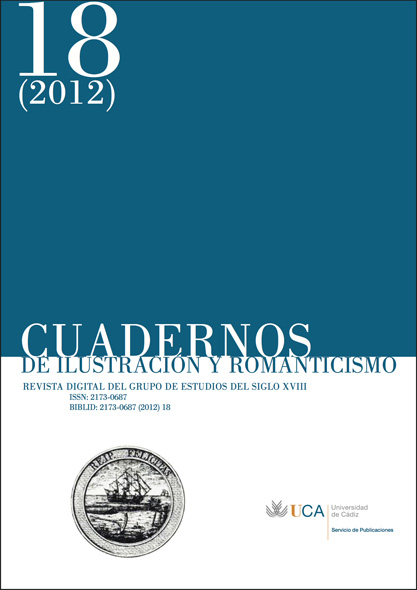Patriotism by comparison: stereotypes about Spain in John Andrew`s Characteristical views (1808)

DOI
https://doi.org/10.25267/Cuad_Ilus_Romant.2012.i18.02Info
Abstract
Characteristical Views of the Past and Present State of the People of Spain and
Italy (1808), written by the British essayist John Andrews, is a clear example of the patriotic spirit of its author. This work is a mere excuse to establish a comparison between England and the rest of the European countries in favour of the former; it is also an attempt to call for the uprising of the countries under Napoleon’s influence or control. A review of the text reveals the survival and spread of these clichés regarding Spain, which were already being published in the rest of Europe since the beginning of the Black Legend. Characteristical Views was written immediately before the Peninsular War, so the image offered about Spain soon turned obsolete when the British Romantic idealization of the Spaniards as brave enemies of Napoleon arose. As we will see, both critics and the public turned their back on this book for one other reason: it was a sort of armchair travel at a time when authentic travel books were in fashion and it was mainly a late example of Eighteenth Century literature about national manners and characters. This phase lag of substance and form will allow us to draw a profile of Britain’s editorial market and perception of Spain around the middle of 1808.
Keywords
Downloads
How to Cite
License

This work is licensed under a Creative Commons Attribution-NonCommercial-NoDerivatives 4.0 International License.
The papers published in this journal are the property of Cuadernos de Ilustración y Romanticismo: the source must be cited whenever they are used.
The authors retain the copyright © and grant the journal the right to publish. They may host their work in the final published version on personal websites or websites intended for scientific dissemination, provided that they indicate the source.






